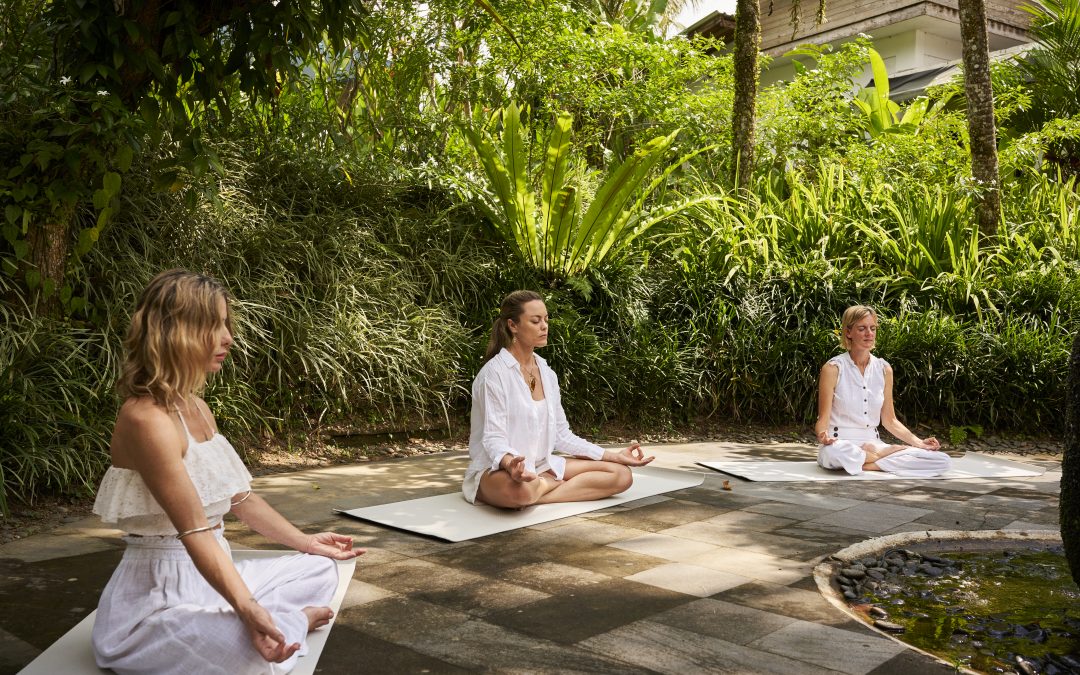
Nov 9, 2023 | Yoga Festival
Complement Your Practice With Authentic Ayurveda
Ayurveda is a holistic system of medicine and well-being that originated in India thousands of years ago. It is often considered one of the world’s oldest healing systems. Ayurveda, which translates to “the science of life,” is built on the idea that our health and well-being are intricately connected to our physical, mental, and spiritual balance. Learning and understanding Ayurveda can be a transformative journey that complements not only a yoga practice but also general living. Lucky for us in the modern world, there are several companies that seek to make Ayurveda more accessible and easy to source. Kerala Ayurveda, which provides not only Ayurvedic products and therapies but also a robust Ayurvedic Academy for true seekers, is one such organization.
Why Learn Ayurveda
As a yoga professional, you most likely were introduced to Ayurveda as part of your basic teacher training. There you may have learned that Ayurveda and yoga are often referred to as sister sciences, as they both originate from the same ancient Vedic texts and share a common philosophical foundation. Ayurveda offers guidance on how to maintain physical health and balance the body’s doshas, while yoga provides a path for mental and spiritual well-being through postures, breathing techniques, and meditation.
Learning the fundamental principles of Ayurveda, such as the three doshas (Vata, Pitta, and Kapha), the importance of a balanced diet and lifestyle, and the significance of mental and emotional well-being empowers you to make informed choices about your health. It teaches you how to prevent illness as well as naturally reverse imbalances that result in disease and discomfort. And not only will you learn to help yourself, but you can also use that Ayurvedic knowledge to help your yoga students embrace a healthier and more harmonious approach to life.
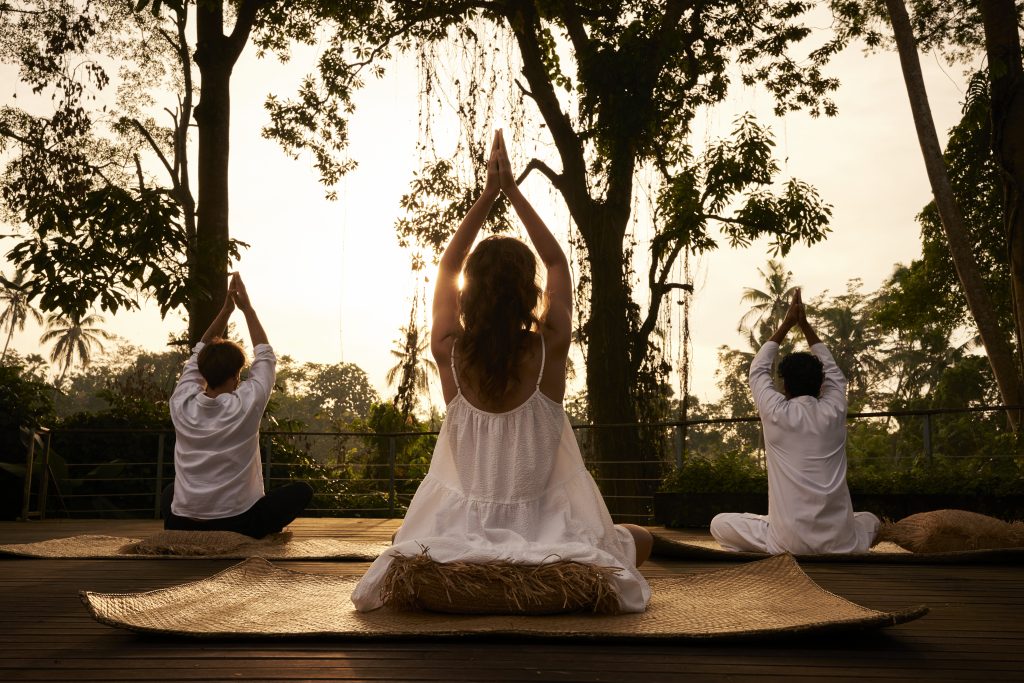
What Does Ayurveda Teach
Ayurveda encompasses a wide array of teachings that address various aspects of holistic health. Some basics are below:
Doshas: Ayurveda identifies three primary doshas—Vata, Pitta, and Kapha—which represent the fundamental energies governing the body. Understanding and balancing these doshas is essential for maintaining overall health.
Diet and Nutrition: Ayurveda emphasizes the importance of personalized nutrition based on one’s constitution (prakriti) and current imbalances (vikriti). It offers dietary guidelines to support optimal digestion, nutrient absorption, and overall well-being.
Lifestyle Practices: Ayurveda advocates for a balanced daily routine (Dinacharya) that aligns with natural rhythms. This includes activities such as waking up early, practicing self-care, and establishing regular sleep patterns.
Herbs and Formulations: Ayurveda utilizes a vast array of herbs and herbal formulations to address specific health concerns and imbalances.
Yoga and Exercise: Specific Yoga postures, meditations, and breath work unique to the individual’s constitution to enhance flexibility, strength, and overall vitality.
Detoxification (Panchakarma) and Self Care: Ayurveda employs purification therapies, collectively known as Panchakarma, to eliminate toxins (ama) from the body. (These therapies are selected and administered under the guidance of an Ayurvedic professional to ensure the best outcome and experience as we all are unique beings.)
How Do I Learn More About Ayurveda?
Ready to dive into the world of Ayurveda? Join Vaidya. Jayarajan Kodikannath, “Dr. J”, from Kerala Ayurveda at the 2024 Sedona Yoga Festival. In his immersive workshop, he’ll cover the basic fundamentals of Ayurveda including the doshas, Ayurvedic diet essentials, and daily routines to harmonize your natural rhythms. You’ll discover insights on tailoring yoga practices to individual constitutions and gain knowledge about commonly used Ayurvedic spices, herbs, and formulations to support imbalance.
This workshop offers a holistic journey into Ayurveda, providing practical tools to align your well-being with the wisdom of this ancient healing system. Don’t miss this opportunity to deepen your understanding and embrace the transformative power of Ayurveda and Yoga!
Ready to dive in? Reserve your spot at the Sedona Yoga Festival today! Tickets on sale now.
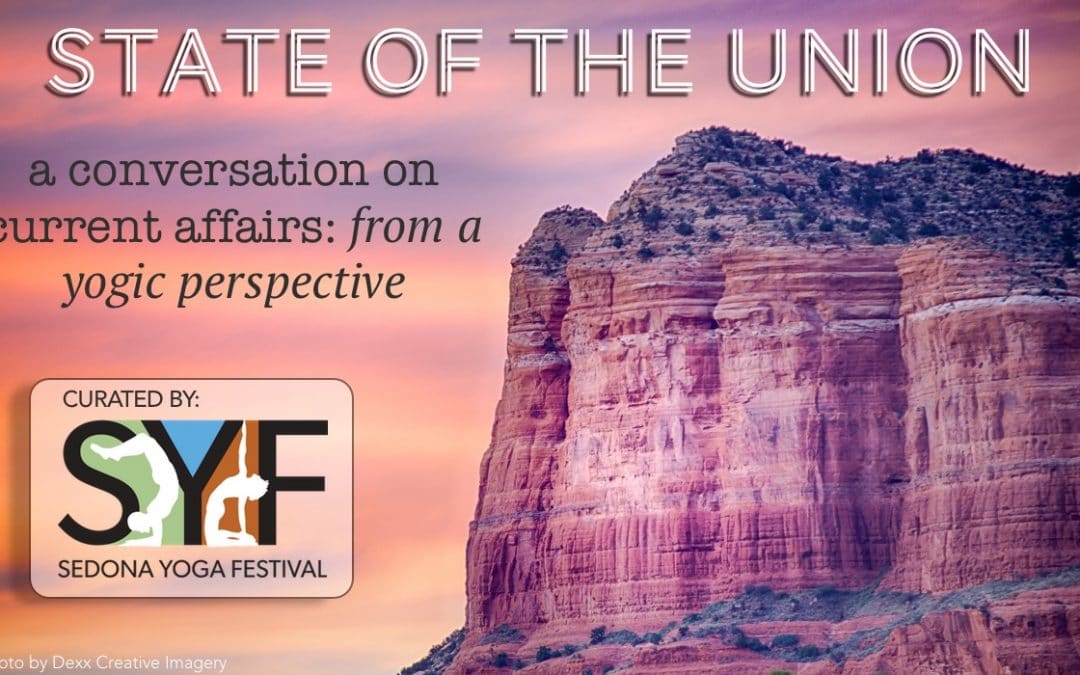
Jun 19, 2018 | Yoga Conference, Yoga Festival, Yoga Philosophy
Introducing the new “State of the Union” blog series where yogis discuss how to approach the circumstances of our world from a yogic perspective.
WHAT CAN I DO
Rama Jyoti Vernon
shared with permission from: https://www.rama.yoga/blog by Alumni presenter and lifetime world peace activist Rama Jyoti Vernon
June 16th, 2018
It is three o’clock in the morning.
I was awakened by vivid images: children being ripped away from their parents on the borders of our country; a baby pulled from its mother’s breast; two and three year olds weeping and wailing for their parents. For the rest of their lives, the endless pain of lack of trust will haunt these children and their parents. There have been repeated inhumane acts throughout history that have demonstrated the inhumanity plaguing the human condition. As Pete Seeger wrote, and many have sung, “When will we ever learn?”
How can those of us in Yoga, who understand the law of cause and effect, be silent and allow this situation to continue through the support of our current leaders who are deaf and insulated to the pain and suffering of others? Are they our representatives? I think not!
We become part of these decisions when we are born into a country of origin. We are part of the dharma of the laws of that land and if that law of dharma, which is supposed to bring order, social stability, and organization, creates chaos, instability, and suffering, it is no longer dharma but adharma. Adharma goes against the grain of the laws of nature and humane social conditions. It destroys instead of builds, and we become part of its destruction if we acquiesce in our silence.
In the scriptural studies of Yoga philosophy and the law of karma, it is believed that if we are born into a country that unjustly makes war upon another and we do not protest, at least in our own hearts, then in another life we will be born into a country that is made war upon.
What can we do? It is the eternal question wherever people feel helpless in making changes. Yes, in Yoga it is possible to rise above the sea of samsara, the sea of endless pain, to experience in consciousness a place beyond the duality, separation, and forgetfulness of the unified soul consciousness. However, in Yoga, even if we
have a glimpse of this paradisiacal state, does it mean we cannot try to alleviate human suffering on this earth plane?
Swami Vivekananda would say that the world (and its problems) is like the kink of a dog’s tail. As long as we are holding it we think it is straight. But the moment we let go, it will just kink up again. Does this mean we can never effect change? Is this the difference between pragmatic action and static inaction?
When we see injustice do we remain silent, thinking someone else will do something or do we go into our meditation and practices asking what our dharma, our destiny, our life’s purpose is in this instance? Do we shed our own tears for the suffering of others? Do we go to the border to light candles, participate in a “sit in” or go on a
hunger strike? Do we write our government representatives or participate in a march on our state and/or nation’s Capital? Or do we continue to turn a deaf ear to the lies told by leaders that thrust the blame on everyone else but themselves? Do we continue to share our thoughts with those who we feel are lacking in discrimination due to
radical political choices they are making?
I awakened in the middle of the night asking the invisible Masters what I can do, and wondered if Germans in l930s Germany did the same. It is always difficult to know when the tide of human decency turns into a cruel regime that conditions the minds of its people while insidiously stripping away the freedoms they are accustomed to. Why is it that so many leaders come to power only to have power over others, but not to serve the needs of their people? Are we being lulled into a hypnotic slumber until it will be too late to awaken? A frog when dropped into a boiling pot will jump out. However, if the heat is turned up gradually, it will be too late for him to escape the boiling cauldron. Is this the acceptance of the abnormal becoming the “new norm?”
Dawn is breaking, the birds are singing, and now rain is softly falling as my tears fall with it. Some might say this is not yogic thinking. We are to be unattached. However, there is a very thin line between non-attachment and indifference. As the Masters say “until we know attachment, we will never know true non-attachment”. I arose to sit with eyes closed, holding the people in all war torn countries in my consciousness. I felt the mother’s grief of the loss of her children, and the children’s loss of the parent. I felt the pain of the wounded in body and in heart. I felt the loss of those who will never return to their homes and lands wandering to seek refuge wherever they are accepted. I held the children and parents fleeing violence and persecution seeking safety and protection in the embrace of Universal consciousness.
That is what I can do! What can you do?
Now is the time to arise from within, like a spiritual warrior guided by the power of compassion, and discrimination, in whatever way we are called. Perhaps for some it is a time not to be silent but to speak out, and stand firm in the winds of growing tyranny and divisive policies that separate nations, states and people. For others, there may be a call for inspired, transformative action, or some may wish to offer the power of silence, prayer and meditation.
Yoga means Union, transcending the allusion of separation to see the Oneness of all humanity and human unity. Together let us hold a vision of a world where peace can prevail; where our thoughts, words and actions are no longer weapons of destruction but are divinely guided to lift the hearts, minds and spirit of others. Perhaps if enough of us hold this vision we can reach a critical mass to impact the collective consciousness of all humanity.
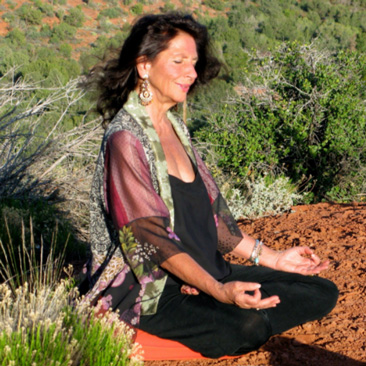 Rama Jyoti Vernon is a Yoga teacher and peace activist, and one of the founders of Yoga Journal. She founded the California Yoga Teachers’ Association, and the California Institute for Yoga Teacher Training, which later became the first U.S. Yoga Teachers’ Training program for the work of Mr. B.K.S. Iyengar. She hosted and organized programs for Mr. Iyengar and started his first organization in the U.S. She is considered one of America’s yoga pioneers, and one of the first yoga teachers in the U.S., beginning in the 1960s.
Rama Jyoti Vernon is a Yoga teacher and peace activist, and one of the founders of Yoga Journal. She founded the California Yoga Teachers’ Association, and the California Institute for Yoga Teacher Training, which later became the first U.S. Yoga Teachers’ Training program for the work of Mr. B.K.S. Iyengar. She hosted and organized programs for Mr. Iyengar and started his first organization in the U.S. She is considered one of America’s yoga pioneers, and one of the first yoga teachers in the U.S., beginning in the 1960s.
Her mother, a student of Swami Paramahamsa Yogananda, took her to her first yoga class at age 15. As an adult, Rama Jyoti was one of the earliest students of B.K.S. Iyengar in North America, and hosted him for two of his first workshops in California in the early 1970s. She founded the American Yoga College, and Unity In Yoga International that eventually evolved into the Yoga Alliance. Under Rama Jyoti’s direction in the 1990s, Unity In Yoga sponsored seven national and three international conferences in the Soviet Union, the Middle East and Central America. Richard Miller and Larry Payne, founders of the International Association of Yoga Therapists (IAYT), have frequently acknowledged Rama Jyoti’s contribution to the creation of IAYT through the connections she fostered at the Unity in Yoga conferences. Rama Jyoti established the Center for Soviet-American Dialogue in 1984 to help connect citizens of the United States with those of the Soviet Union during the Cold War years. She served as a citizen diplomat, bringing groups of grass roots citizens to dialogue across borders, and was interviewed numerous times by U.S. media and Soviet television and radio. She later simplified the name of her organization to the Center for International Dialogue and expanded its out-reach of dialogue and conflict resolution trainings into Afghanistan and the Middle East, visiting Jordan, the West Bank and Gaza, China and Cuba, with American citizens.
Rama Jyoti, mother of five children, twelve grandchildren and one great-grandchild, continues to travel nationally and internationally to teach Yoga and Yoga teachers. Her work is codified in the ultimate yoga practice book, Yoga: The Practice of Myth and Sacred Geometry, and her yoga philosophy commentaries, Patañjali’s Yoga S?tras, Gateway to Enlightenment.
Learn more about Rama Jyoti: www.rama.yoga




 Rama Jyoti Vernon is a Yoga teacher and peace activist, and one of the founders of Yoga Journal. She founded the California Yoga Teachers’ Association, and the California Institute for Yoga Teacher Training, which later became the first U.S. Yoga Teachers’ Training program for the work of Mr. B.K.S. Iyengar. She hosted and organized programs for Mr. Iyengar and started his first organization in the U.S. She is considered one of America’s yoga pioneers, and one of the first yoga teachers in the U.S., beginning in the 1960s.
Rama Jyoti Vernon is a Yoga teacher and peace activist, and one of the founders of Yoga Journal. She founded the California Yoga Teachers’ Association, and the California Institute for Yoga Teacher Training, which later became the first U.S. Yoga Teachers’ Training program for the work of Mr. B.K.S. Iyengar. She hosted and organized programs for Mr. Iyengar and started his first organization in the U.S. She is considered one of America’s yoga pioneers, and one of the first yoga teachers in the U.S., beginning in the 1960s.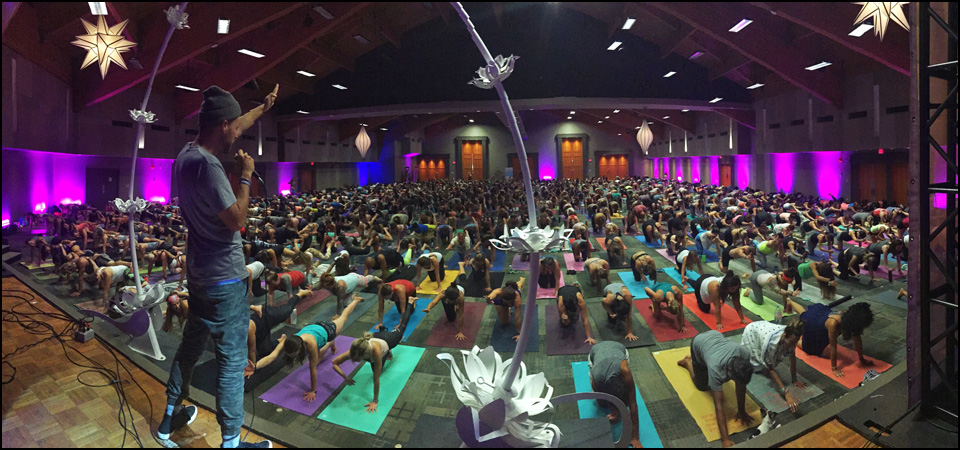
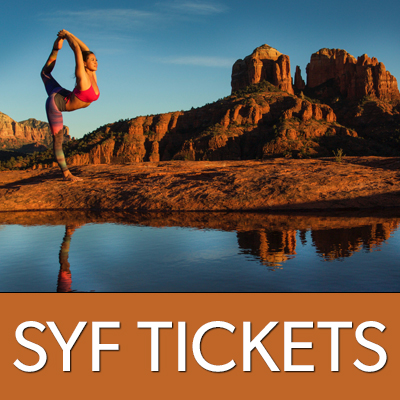


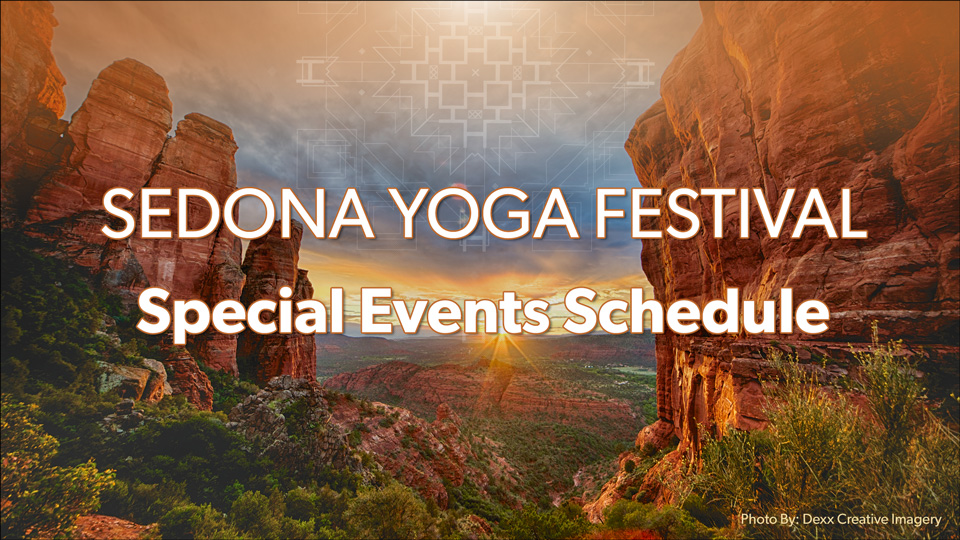

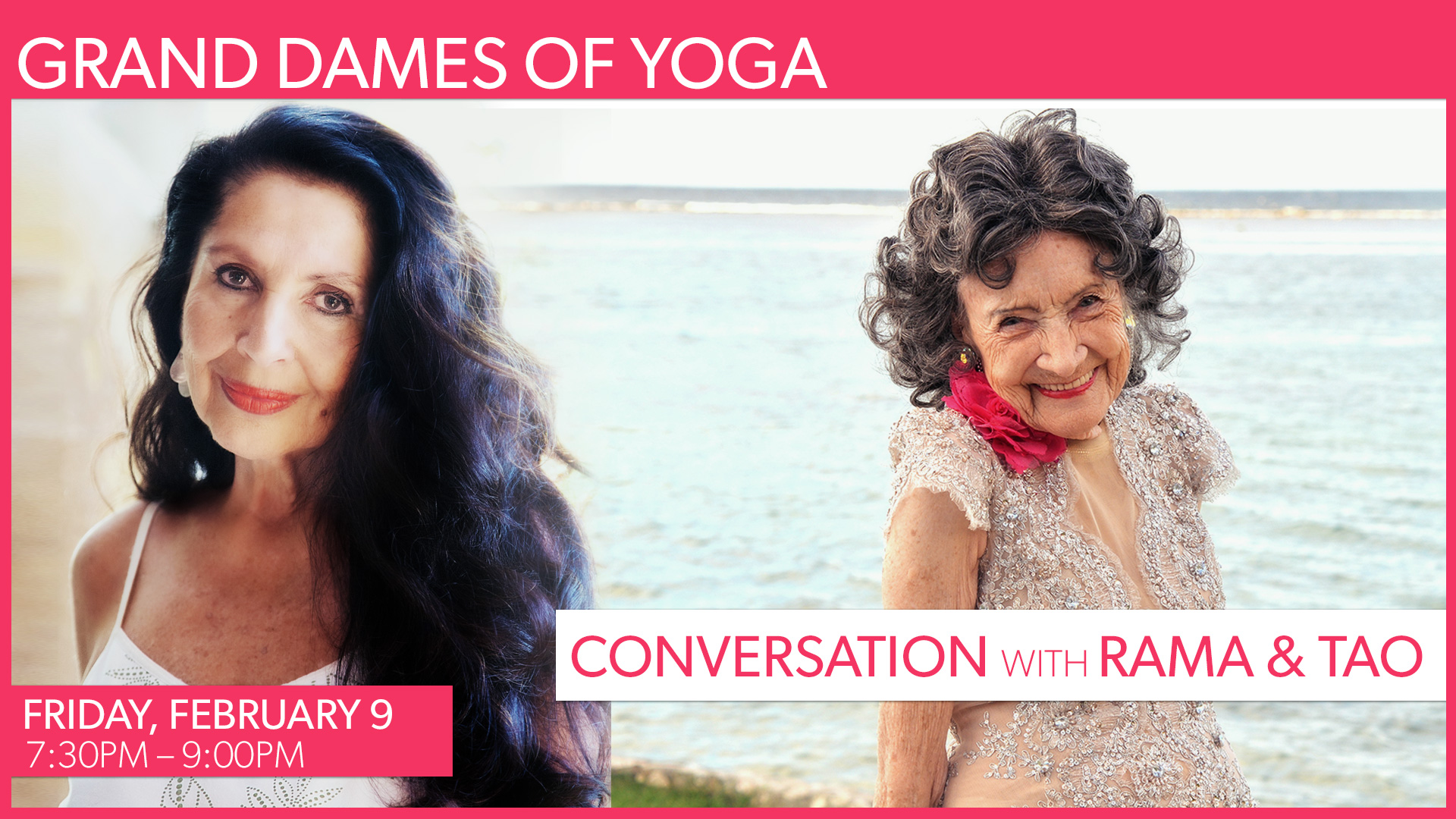

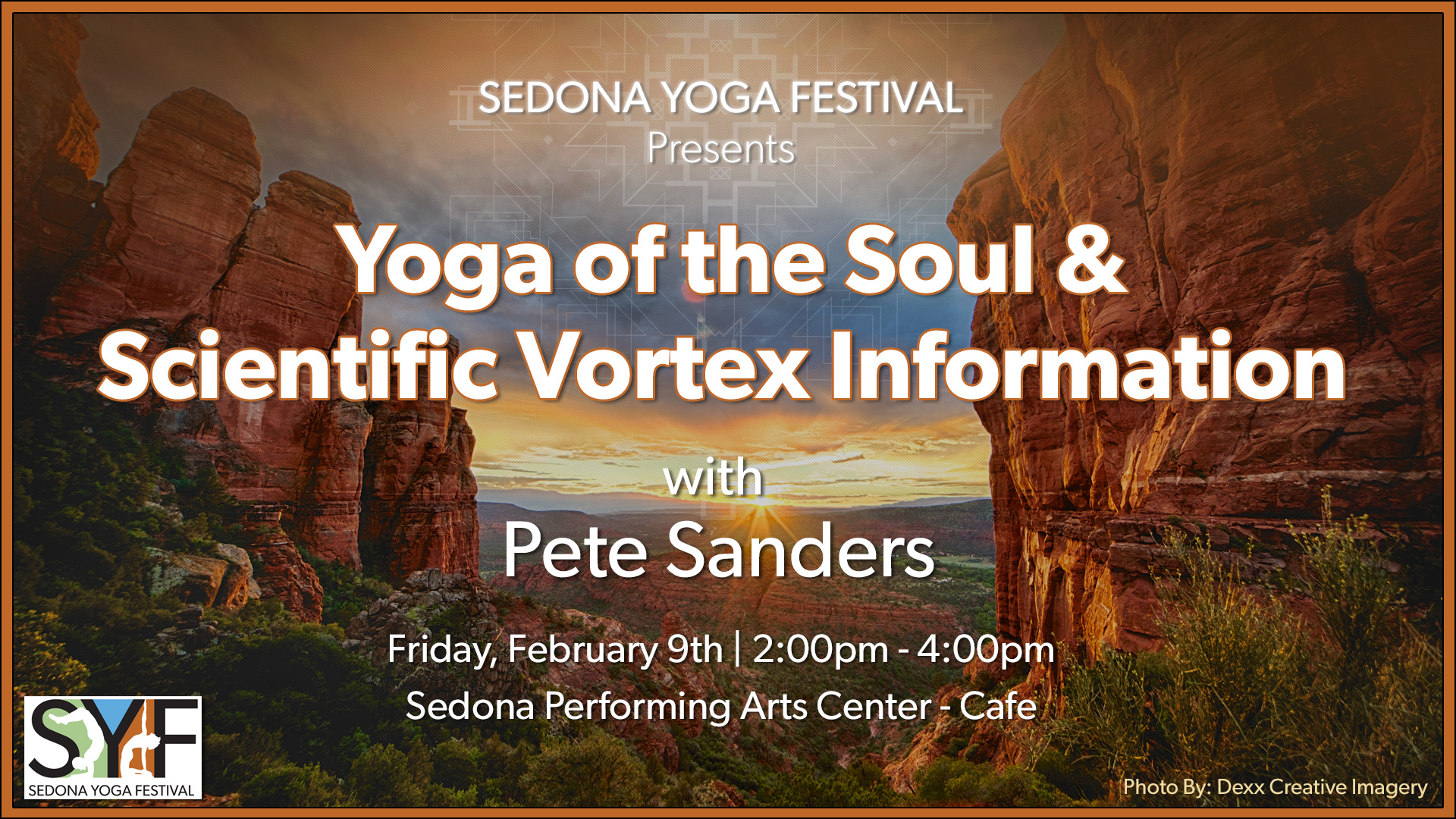
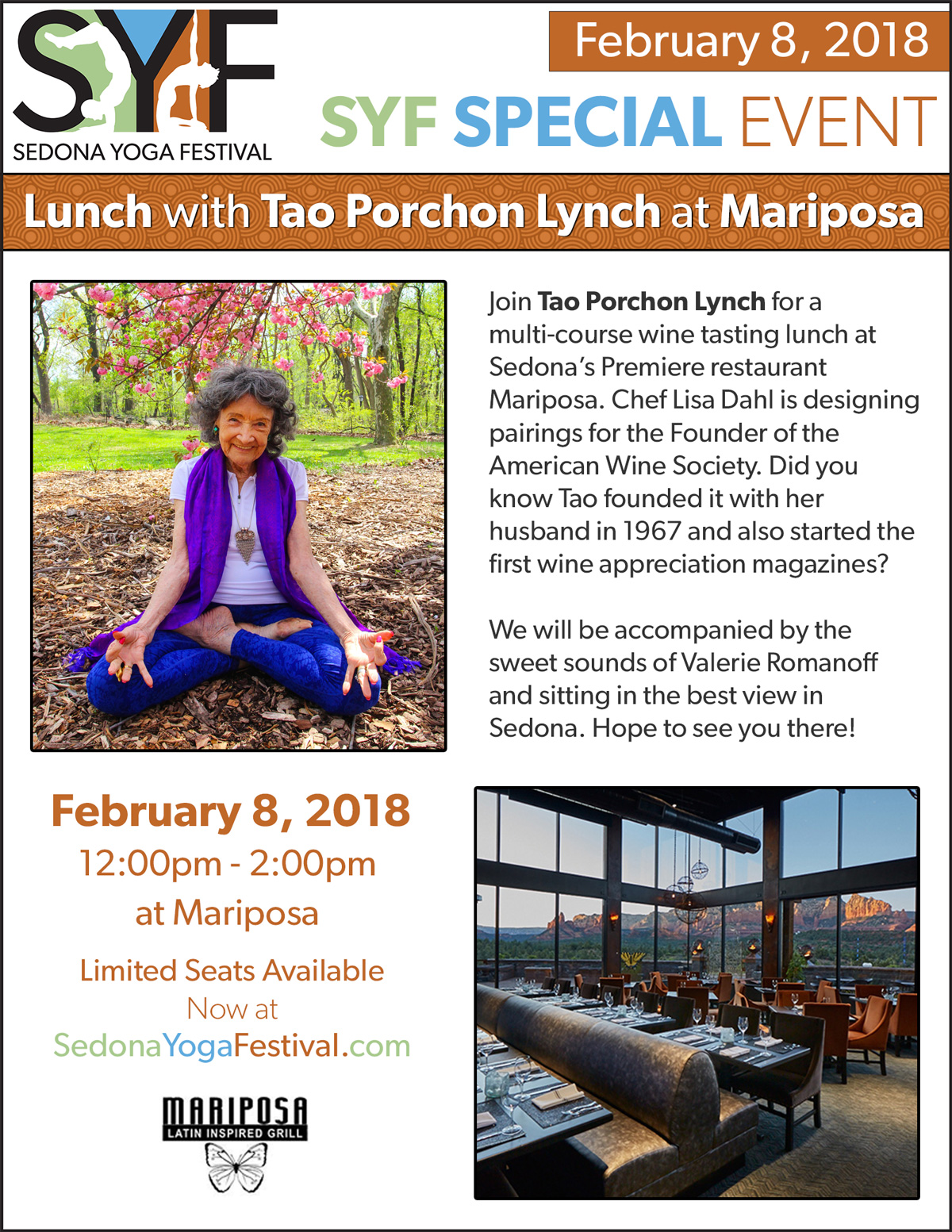

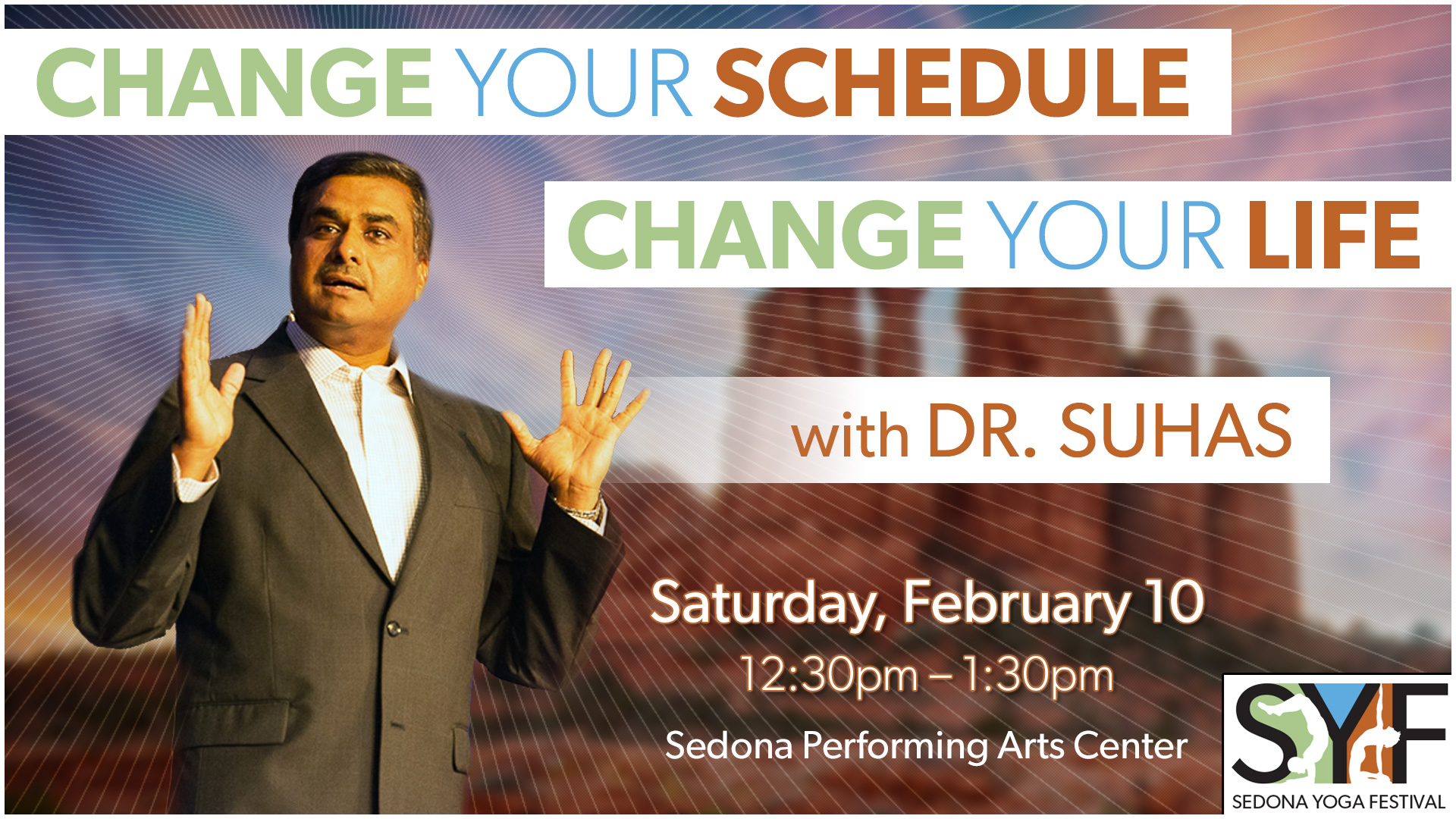

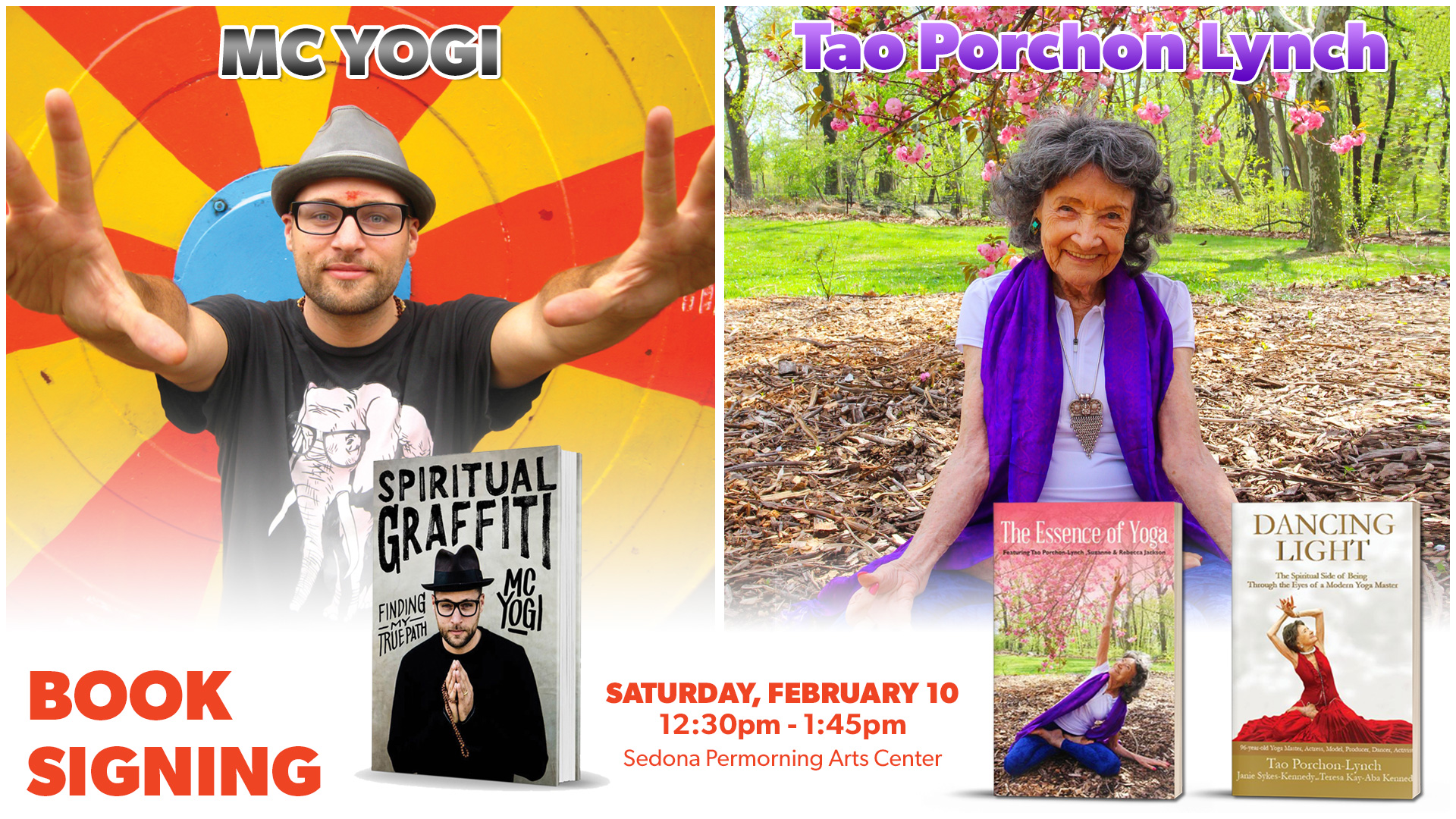


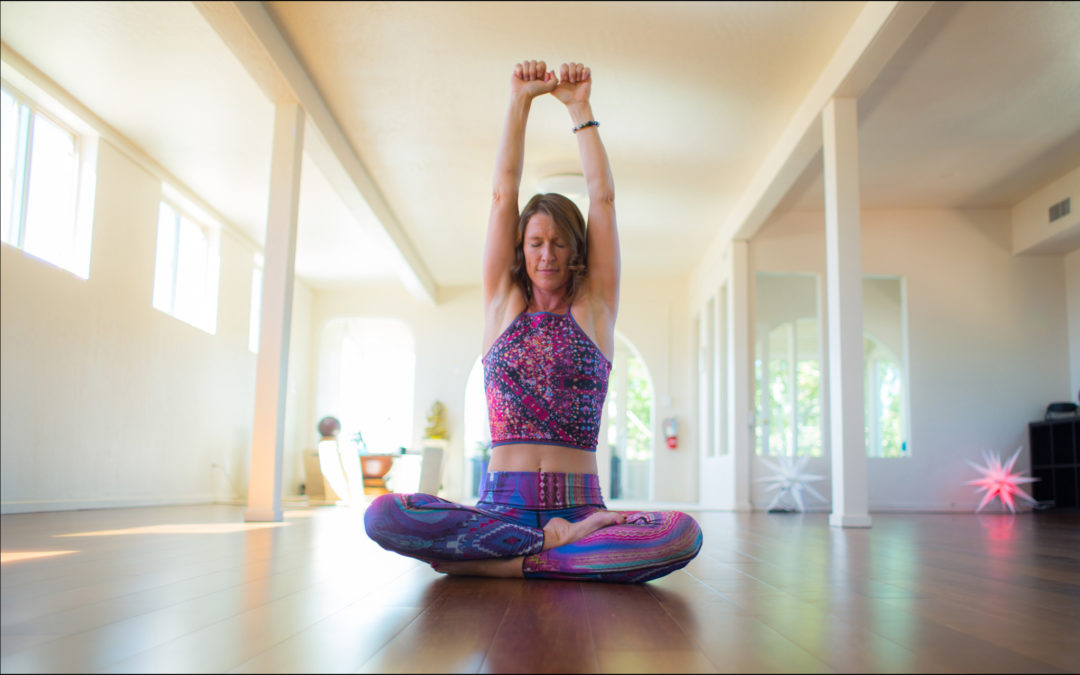

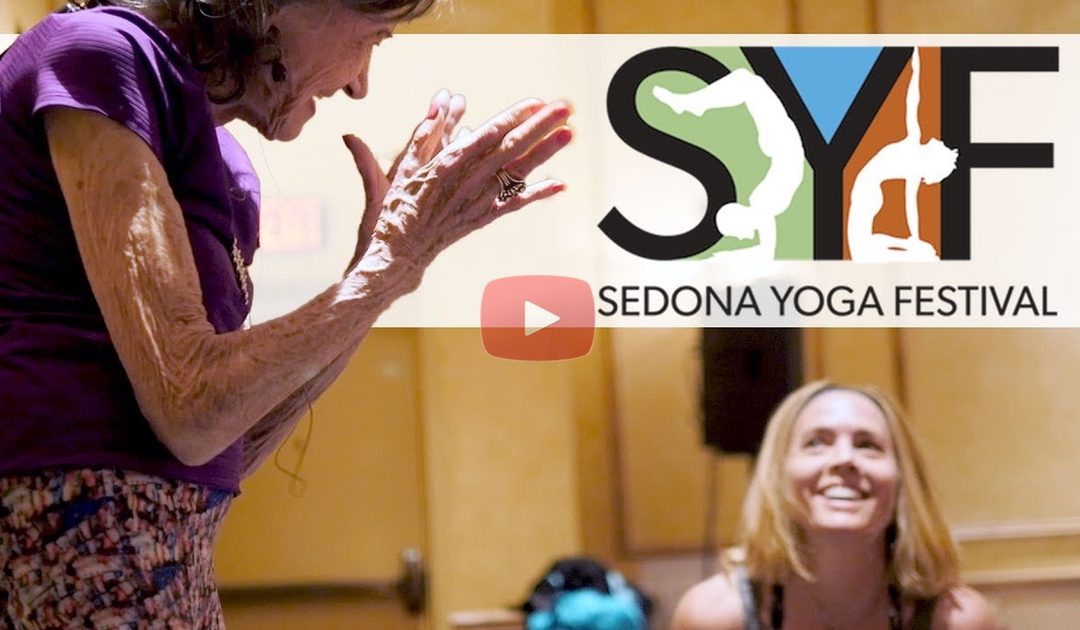
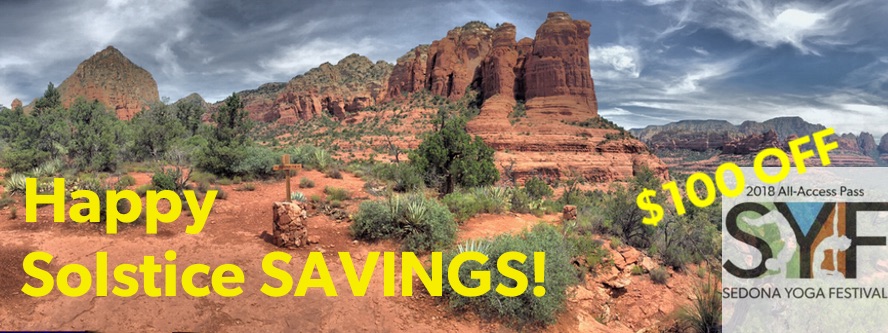
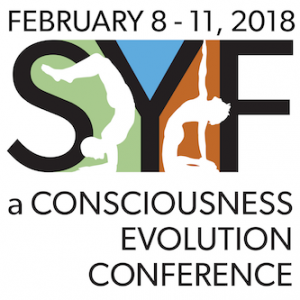 Happy Solstice
Happy Solstice

